- Home
- Hugh Howey
Resist Page 40
Resist Read online
Page 40
APOLLO JONES IN: THE FINAL SHOWDOWN
Who’s the plainclothes police detective who leaves all the criminals dejected?
[Apollo!]
Who stops crime in the nick of time and dazzles the ladies with feminine rhymes?
[Apollo!]
Can you dig it?
Apollo’s cruiser screeches to a halt at the entrance to the abandoned warehouse. He leaps out the door and pulls his gun, a custom gold Beretta with his name engraved on the handle.
“Hot gazpacho!” he says. “This is it.”
Patrick pops out of the passenger seat. “We’ve got him now.”
They have been chasing their suspect for weeks now, some sicko responsible for a string of murders. In a surprising third act twist, they discovered that the one responsible is one of their own, a bad apple who gets his kicks from harming the innocent.
“We’ve got him pinned down inside,” says Apollo.
“He won’t escape this time.”
“Let’s do this, brother.”
They skip the middle part of the story, since that has been where we’ve been getting into trouble. They rush right to the end, where the man in the police uniform is waiting for them.
“Congratulations on solving my riddles, gentlemen. I’m impressed.”
“You’re going down, punk,” says Apollo.
“Yeah!” says Patrick.
“I doubt that very much.”
The man in the police uniform pulls his weapon and fires three shots, all hitting Apollo in the torso. He crumples to the ground. Patrick aims his own weapon, but the man in the police uniform is able to quickly shoot him in the shoulder, sending Patrick’s pistol to the ground.
“You thought you could defeat me so easily? How foolish. We’re not so different, you and I. You wanted a story about good aliens and bad aliens? Well, so did I.”
“How’s this for foolish?” says Apollo, pulling up his shirt to reveal he was wearing a bulletproof vest all along. Then, he unloads a clip from his legendary golden Beretta at him. The man in the police uniform falls to the ground, bleeding.
Patrick clutches his shoulder. “We got him.”
“We’re not quite done yet,” says Apollo.
He walks over to the body of the man in the police uniform. He tugs on the man’s face, pulling it off completely. It is the face of Lord Tklox.
“This was his plan all along,” says Apollo. “By murdering all those innocent people, he was turning us against each other, thereby making it easier for his invasion plans to succeed. All he had left to do was answer the Omega Question and boom, no more civilization. Good thing we stopped him in time.”
“I knew it,” says Patrick. “He was never one of us. He was just a bad guy the whole time. It is in no way necessary for me to consider the ideological mechanisms by which my community and society determine who benefits from and participates in civil society, thus freeing me from cognitive dissonance stemming from the ethical compromises that maintain my lifestyle.”
“Hot gazpacho!” says Apollo.
They share a manly handshake like Schwarzenegger and Carl Weathers in Predator. It is so dope.
“I’ll go call dispatch,” says Patrick. “Tell them that we won’t be needing backup. Or that we will be needing backup to get the body and investigate the scene? I don’t really know how this works. The movie usually ends at this point.”
Patrick leaves, and Apollo guards the body. Suddenly, the warehouse door bursts open. Seeing him standing over the dead body, a man in a police uniform yells for Apollo to drop his weapon. Apollo shouts that he is a cop and moves to gingerly put his golden gun on the ground, but he is too slow. Bulletproof vests do not cover the head. He is very, very dead.
I WASN’T TRYING to do apologetics for him. Before, I mean. I wasn’t saying it’s okay to kill people because they aren’t perfect or do things that are vaguely threatening. I was just trying to find some meaning, the moral of the story. All I ever wanted to do was write a good story. But murder is inherently meaningless. The experience of living is a creative act, the personal construction of meaning for the individual, and death is the final return to meaninglessness. Thus, the act of killing is the ultimate abnegation of the human experience, a submission to the chaos and violence of the natural world. To kill, we must either admit the futility of our own life or deny the significance of the victim’s.
This isn’t right.
It’s not supposed to happen like this.
Why does this keep happening?
It’s the same story every time. Again and again and again.
I can’t fight the man in the police uniform. He’s real, and I’m an authorial construct, just words on a page, pure pretend. But you know who isn’t pretend? You. We have to save Apollo. We’re both responsible for him. We created him together. Death of the Author, you know? It’s just you and me now. I’ve got one last trick. I didn’t mention this in the interest of pace and narrative cohesion, but I lifted the Omega Question off Lord Tklox before he died. I don’t have the answer, but I know the question. You’ve got to go in. I can keep the man in the police uniform at bay as long as I can, but you have to save Apollo. We’re going full Morrison.
Engage second-person present.
God forgive us.
YOU WAKE UP. It is still dark out. You reach out to take hold of your spouse. Your fingers intertwine, and it is difficult to tell where you stop and they begin. You love them so much. After a kiss and a cuddle, you get out of bed. You go to the bathroom and perform your morning toilette. When you are finished, you go to kitchen and help your spouse with breakfast for the kids.
They give you a hug when they see you. You hug back, and you never want to let go. They are getting so big now, and you do everything you can to be a good parent to them. You know they love you, but you also want to make sure they have the best life possible.
You work hard every single day to make that happen. Your boss is hard on you, but he’s a good guy, and you know you can rely on him when it counts. You trust all your coworkers with your life. You have to. There’s no other option in your line of work.
After some paperwork, you and your partner go out on patrol. You’ve lived in this neighborhood your entire life. Everything about it is great, the food, the sights, the people. There are a few bad elements, but it’s your job to stop them and keep everybody safe.
It’s mostly nickel and dime stuff today, citations and warnings. The grocery store reports a shoplifter. An older woman reports some kids loitering near her house. Your partner notices a man urinating on street while you’re driving past. That kind of thing.
As you are on your way back to the station, you notice a man walking alone on the sidewalk. It’s late, and it doesn’t look like this is his part of town. His head is held down, like he’s trying to hide his face from you. This is suspicious. Your partner says he recognizes him, that he fits the description of a mugger who has been plaguing the area for weeks. You pull up to him. Ask him what he is doing. He doesn’t give you a straight answer. You ask him for some identification. He refuses to give it to you. You don’t want to arrest this guy for nothing, but he’s not giving you much choice.
Suddenly, his hand moves toward a bulge in his pocket. It’s a gun. You know it’s a gun. You draw your weapon. You just want to scare him, show him that you’re serious, stop him from drawing on you. But is he even scared? Is that fear on his face or rage? How can you even tell? He’s bigger than you, and he is angry, and he probably has a gun. You do not know this person. You cannot imagine what is going through his mind. You have seen this scenario a million times before in movies and TV shows.
You might die.
You might die.
You might die.
The Omega Question is activated:
Who matters?
ABOUT THE AUTHORS
Saladin Ahmed’s first novel, Throne of the Crescent Moon, was nominated for the Hugo and Nebula Awards and won the Locus Award for Best
First Novel. His short fiction, essays, and poems have appeared in The New York Times, The Boston Globe, Slate, Salon, and BuzzFeed. Recently he has focused on comics, winning the Eisner Award for Best New Series for Black Bolt, and penning the critically-acclaimed Exiles and Quicksilver: No Surrender for Marvel Comics. Saladin has also created the original series Abbott, an occult thriller set in 1970s Detroit, for Boom Studios.
Leigh Alexander is a writer of futurist fiction and interactive entertainment. She was recently narrative director on the acclaimed game Reigns: Her Majesty, and her digital culture writing has appeared in The Guardian, The Columbia Journalism Review, Motherboard, the New Statesman and more. She is the author of Breathing Machine, a memoir of early internet society, and her occasional ASMR video series “Lo-Fi Let’s Play” explores ancient computer adventure games. More projects can be found at leighalexander.net.
Violet Allen is a writer based in Chicago, Illinois. Her work has appeared in Lightspeed, Liminal Stories, Best American Science Fiction & Fantasy, and elsewhere. She is currently working very hard every day on her debut novel and definitely has more than ten pages written, is not lying to her agent about having more than ten pages written and does not spend most of her time listening to podcasts, and everything is totally cool, I promise. She can be reached on Twitter at @blipstress.
Charlie Jane Anders’ next novel is The City in the Middle of the Night, which comes out in February 2019. She’s also the author of All the Birds in the Sky, which won the Nebula, Crawford, and Locus awards, and Choir Boy, which won a Lambda Literary Award. She’s also written a novella called Rock Manning Goes For Broke and a short story collection called Six Months, Three Days, Five Others. Her short fiction has appeared on Tor.com, and in Boston Review, Tin House, Conjunctions, the Magazine of Fantasy and Science Fiction, Wired Magazine, Slate, Asimov’s Science Fiction, Lightspeed, ZYZZYVA, Catamaran Literary Review, McSweeney’s Internet Tendency, and tons of anthologies. Her story “Six Months, Three Days” won a Hugo Award, and her story “Don’t Press Charges And I Won’t Sue” won the Theodore Sturgeon Award. She also organizes the monthly Writers With Drinks reading series.
Jason Arnopp is a novelist and scriptwriter. He is the author of the terrifying Orbit Books novel The Last Days Of Jack Sparks, acclaimed by the likes of Ron Howard, Sarah Lotz, and Alan Moore. His previous work includes Doctor Who and Friday The 13th tie-in fiction, BBC Radio 4 comedy, Beast In The Basement, A Sincere Warning About The Entity In Your Home, Auto Rewind, and the 2011 Edinburgh International Film Festival selection Stormhouse. His background is in journalism, which has informed his non-fiction books From The Front Lines Of Rock and How To Interview Doctor Who, Ozzy Osbourne And Everyone Else. He lives in Brighton, UK and can be found at JasonArnopp.com and on Twitter as @JasonArnopp. Sign up for his newsletter and download a free book: bit.ly/ArnoppList.
Elizabeth Bear was born on the same day as Frodo and Bilbo Baggins, but in a different year. She is the Hugo, Sturgeon, Locus, and Campbell Award winning author of nearly 30 novels (The most recent is Karen Memory, a Weird West adventure from Tor) and over a hundred short stories. She lives in Massachusetts with her partner, writer Scott Lynch, three adventurous cats, and an elderly and opinionated dog.
Desirina Boskovich’s short fiction has been published in Clarkesworld, Lightspeed, Nightmare, F&SF, Kaleidotrope, PodCastle, Drabblecast, and anthologies such as The Apocalypse Triptych, What the #@&% Is That? and 2084. Her debut novella, Never Now Always, was published in 2017 by Broken Eye Books. She is also the editor of It Came From the North: An Anthology of Finnish Speculative Fiction (Cheeky Frawg, 2013), and together with Jeff VanderMeer, co-author of The Steampunk User’s Manual (Abrams Image, 2014). Her next project is Starships & Sorcerers: The Secret History of Science Fiction, forthcoming from Abrams Image. Find Desirina online at www.desirinaboskovich.com.
C. Robert Cargill is a novelist, former film critic, and a screenwriter on Marvel’s Doctor Strange and both of the Sinister films. His recent novel Sea of Rust was shortlisted for the Arthur C. Clarke Award. He lives and works in Austin, Texas.
Delilah S. Dawson is the New York Times bestselling author of Star Wars: Phasma, the Blud series, the Hit series, Servants of the Storm, and the Shadow series, beginning with Wake of Vultures and written as Lila Bowen. With Kevin Hearne, she co-writes the Tales of Pell, starting with Kill the Farm Boy. Her comics include the creator-owned Ladycastle and Sparrowhawk as well as Star Wars Adventures, Star Wars Forces of Destiny, The X-Files Case Files, Adventure Time, Labyrinth, Rick and Morty, and Spider-Man. Find her online at whimsydark.com. Delilah lives in Florida with her family.
Kieron Gillen is a writer and critic based in London. He is best known as the co-creator of the award-winning comics The Wicked + Divine and Phonogram. He is also the co-creator of the not award-winning comic series DIE, but that’s not out yet, so he doesn’t feel too bad about its lack of critical notices. His work for Marvel comics include Star Wars, Uncanny X-men, Darth Vader, Iron Man, Doctor Aphra, the GLAAD award-winning Young Avengers and many more. He likes to think of this as less as experimenting with prose, and more like writing an overlong caption. As anyone who has read his comics will know, he is all too at home with overlong captions.
Kevin Hearne is the author of the Iron Druid Chronicles, the Seven Kennings trilogy, and co-author of the Tales of Pell with Delilah S. Dawson. He likes tacos and despises fascism.
Hugh Howey has wanted nothing more in life than to be Han Solo. Since starships are not yet a thing, he spent his years working as a bookseller while penning tales of more interesting times. Originally self-published with terrible cover art, his novels have since become New York Times bestsellers, translated into over forty languages. He now lives on a catamaran that he’s sailing around the world. He has made the Kessel Run in less than twelve parsecs.
Laura Hudson is the culture editor at The Verge. She was previously an editor at Wired and Offworld, a writer at Feminist Frequency, and the founder and editor-in-chief of ComicsAlliance. She likes cats, games, karaoke, and crushing the patriarchy.
Jake Kerr spent fifteen years as a music industry journalist before his first published story, “The Old Equations,” was nominated for the Nebula Award from the Science Fiction Writers of America and was shortlisted for the Theodore Sturgeon and StorySouth Million Writers awards. His stories have subsequently been published in magazines across the world, broadcast in multiple podcasts, and been published in multiple anthologies and year’s best collections. A graduate of Kenyon College, Kerr studied fiction under Ursula K. Le Guin and Peruvian playwright Alonso Alegria. He lives in Dallas, Texas.
Sarah Kuhn is the author of the popular Heroine Complex novels—a series starring Asian American superheroines. The first book is a Locus bestseller, an RT Reviewers’ Choice Award nominee, and one of the Barnes & Noble Sci-Fi & Fantasy Blog’s Best Books of 2016. Upcoming projects include her YA debut—the Japan-set romantic comedy I Love You So Mochi—and a graphic novel about Batgirl Cassandra Cain for DC Comics. Sarah is also a finalist for the John W. Campbell Award for Best New Writer and has penned assorted comics and short fiction about geeks, aliens, romance, and Barbie. Yes, that Barbie.
Khaalidah Muhammad-Ali’s publications include Strange Horizons, Fiyah Magazine, Diabolical Plots, and others. Her fiction has been featured in The Best Science Fiction and Fantasy of the Year: Volume 12 edited by Jonathan Strahan and The Best Science Fiction of the Year: Volume Three edited by Neil Clarke. You can hear her narrations at any of the four Escape Artists podcasts, Far Fetched Fables, and Strange Horizons. She can be found online at http://khaalidah.com.
An (pronounce it “On”) Owomoyela is a neutrois author with a background in web development, linguistics, and weaving chain maille out of stainless steel fencing wire, whose fiction has appeared in a number of venues including Clarkesworld, Asimov’s Science Fiction, Lightspeed, and a handful of Year’s Bests. An’s interests range from pulsars and Cepheid variables to gender studies
and nonstandard pronouns, with a plethora of stops in-between. Se can be found online at an.owomoyela.net.
Samuel Peralta is a physicist, entrepreneur, storyteller. His projects have hit the USA Today and Wall Street Journal bestseller lists, and been shortlisted in Best American Science Fiction & Fantasy. His poetry has been spotlighted by the BBC and Best American Poetry. He is the creator of the Future Chronicles anthologies—all of which have, in turn, become Amazon #1 category bestsellers. Samuel has designed nuclear tools, built solar fab plants and worked on optoelectronic start-ups. He is a producer of independent films, one nominated for a Golden Globe. And he cooks a mean risotto. Find more of his work at www.samuelperalta.com.
Beth Revis is a NY Times bestselling author with books available in more than twenty languages. Her next title, Give the Dark my Love, is a dark fantasy about love and death. It will be available this fall. Beth’s other books include the bestselling science fiction trilogy, Across the Universe, and a novel in the Star Wars universe entitled Rebel Rising. She’s the author of two additional novels, numerous short stories, and the non-fiction Paper Hearts series, which aids aspiring writers. A native of North Carolina, Beth is currently working on a new novel for teens. She lives in rural NC with her boys: one husband, one son, and two massive dogs.
Madeleine Roux is the New York Times bestselling author of the Asylum series, as well as the House of Furies series, Allison Hewitt Is Trapped, Sadie Walker Is Stranded, and her upcoming science fiction debut, Salvaged. Her short story contributions can be found in collections like Star Wars: From A Certain Point of View, Scary Out There, and New Scary Stories to Tell in the Dark. Madeleine lives with her beloved dog in Seattle, Washington.

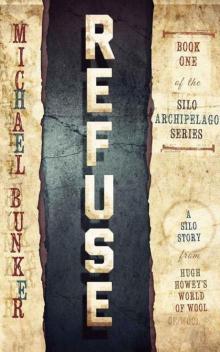 Refuse (The Silo Archipelago Series Book 1)
Refuse (The Silo Archipelago Series Book 1)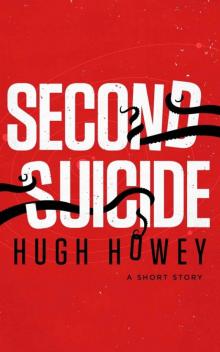 Second Suicide: A Short Story
Second Suicide: A Short Story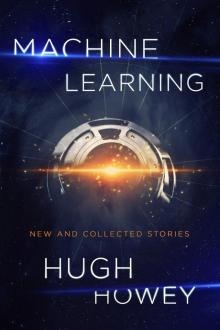 Machine Learning: New and Collected Stories
Machine Learning: New and Collected Stories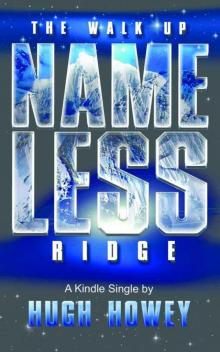 The Walk Up Nameless Ridge
The Walk Up Nameless Ridge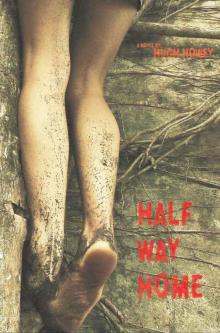 Half Way Home
Half Way Home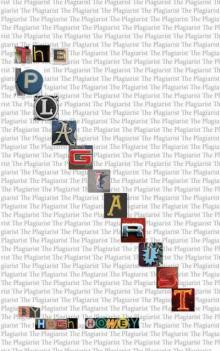 The Plagiarist
The Plagiarist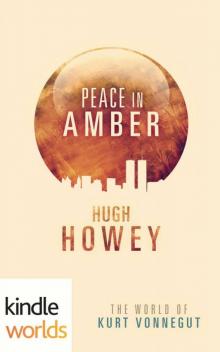 Peace in Amber
Peace in Amber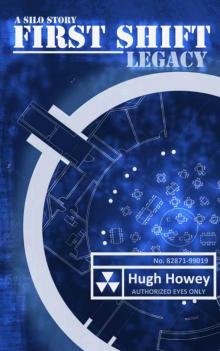 First Shift: Legacy
First Shift: Legacy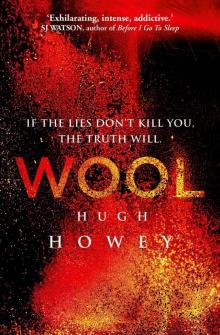 Wool
Wool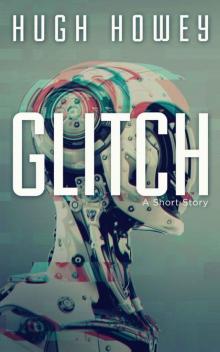 Glitch
Glitch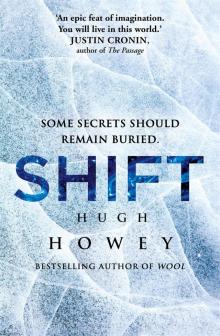 Shift
Shift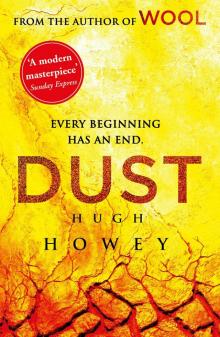 Dust
Dust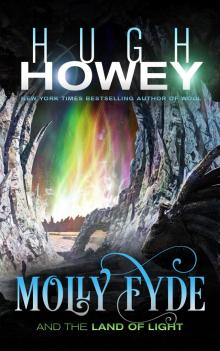 Molly Fyde and the Land of Light
Molly Fyde and the Land of Light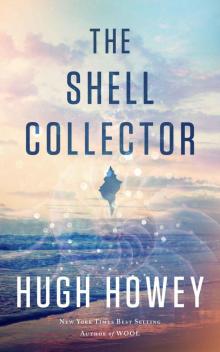 The Shell Collector
The Shell Collector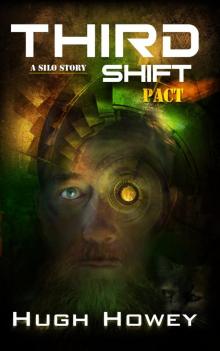 Third Shift: Pact
Third Shift: Pact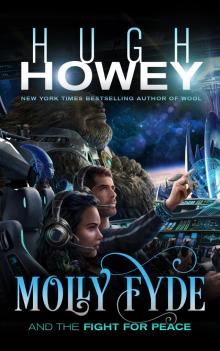 Molly Fyde and the Fight for Peace
Molly Fyde and the Fight for Peace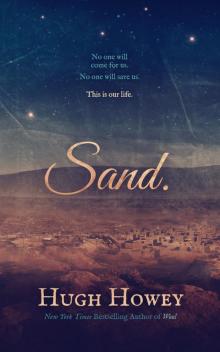 Sand Omnibus
Sand Omnibus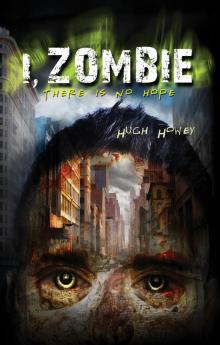 I, Zombie
I, Zombie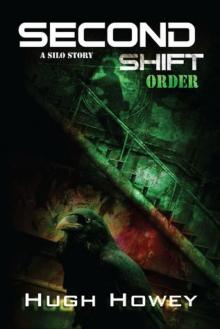 Second Shift: Order
Second Shift: Order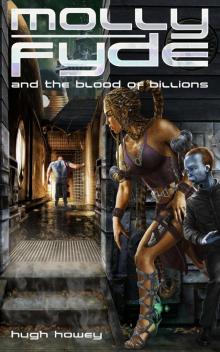 Molly Fyde and the Blood of Billions
Molly Fyde and the Blood of Billions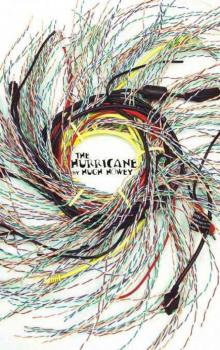 The Hurricane
The Hurricane The Box
The Box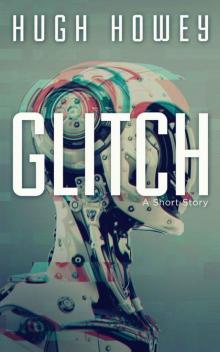 Glitch_A Short Story
Glitch_A Short Story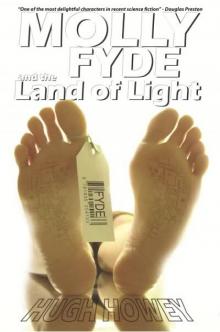 Molly Fyde and the Land of Light tbs-2
Molly Fyde and the Land of Light tbs-2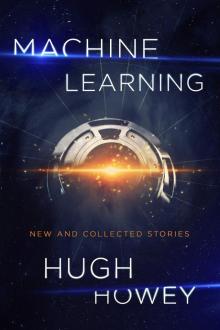 Machine Learning
Machine Learning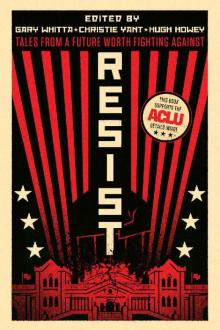 Resist
Resist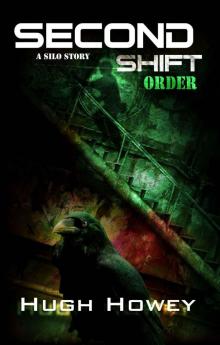 Second Shift - Order (Part 7 of the Silo Series) (Wool)
Second Shift - Order (Part 7 of the Silo Series) (Wool)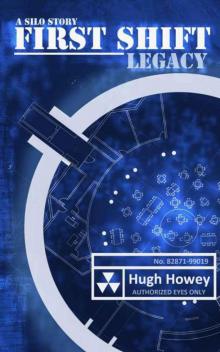 First Shift - Legacy s-1
First Shift - Legacy s-1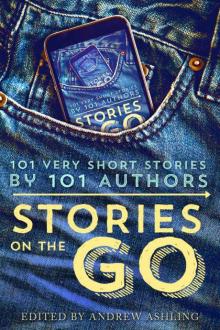 Stories on the Go: 101 Very Short Stories by 101 Authors
Stories on the Go: 101 Very Short Stories by 101 Authors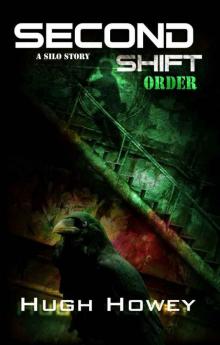 Second Shift - Order s-2
Second Shift - Order s-2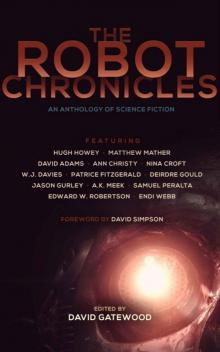 The Robot Chronicles
The Robot Chronicles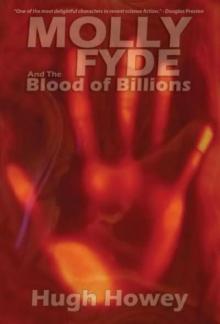 Molly Fyde and the Blood of Billions tbs-3
Molly Fyde and the Blood of Billions tbs-3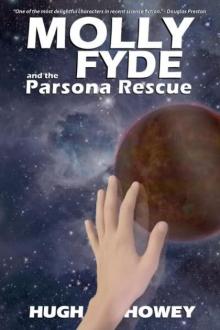 Molly Fyde and the Parsona Rescue tbs-1
Molly Fyde and the Parsona Rescue tbs-1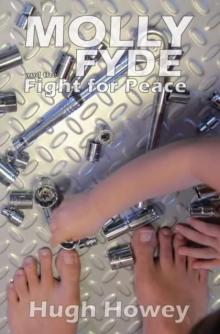 Molly Fyde and the Fight for Peace tbs-4
Molly Fyde and the Fight for Peace tbs-4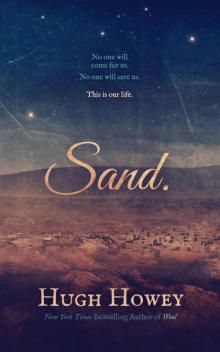 Sand
Sand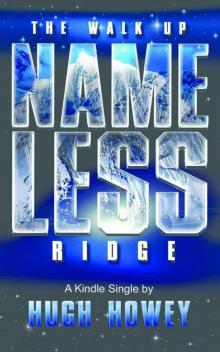 The Walk Up Nameless Ridge (Kindle Single)
The Walk Up Nameless Ridge (Kindle Single)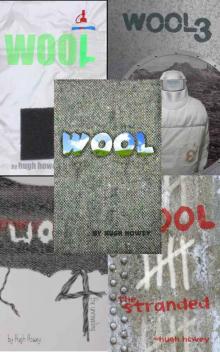 Wool Omnibus Edition (Wool 1 - 5)
Wool Omnibus Edition (Wool 1 - 5)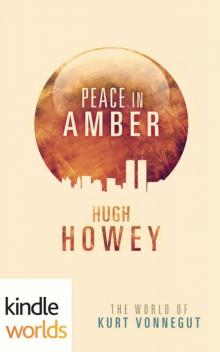 The World of Kurt Vonnegut: Peace in Amber
The World of Kurt Vonnegut: Peace in Amber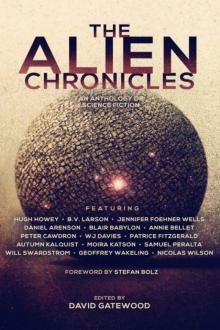 The Alien Chronicles
The Alien Chronicles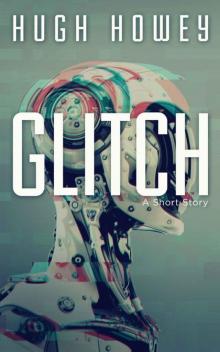 Glitch: A Short Story (Kindle Single)
Glitch: A Short Story (Kindle Single)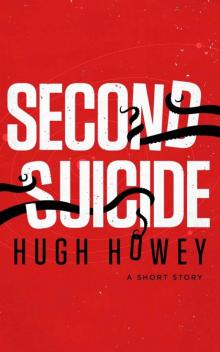 Second Suicide: A Short Story (Kindle Single)
Second Suicide: A Short Story (Kindle Single)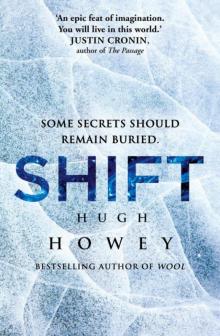 Shift (silo)
Shift (silo)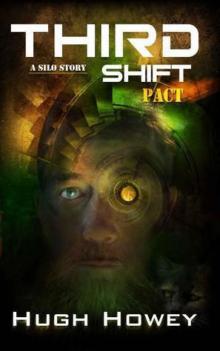 Third Shift - Pact
Third Shift - Pact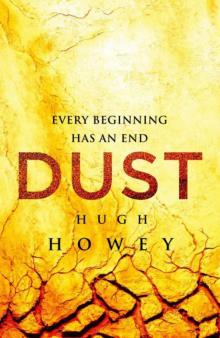 Dust s-9
Dust s-9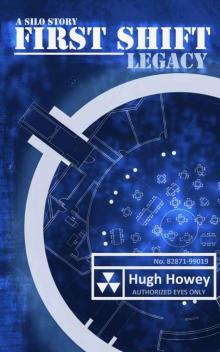 First Shift - Legacy (Part 6 of the Silo Series) (Wool)
First Shift - Legacy (Part 6 of the Silo Series) (Wool)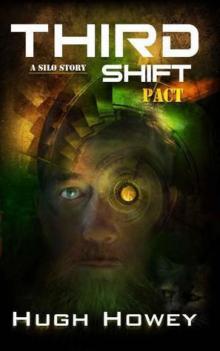 Third Shift - Pact s-3
Third Shift - Pact s-3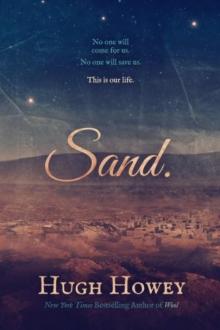 Sand: Omnibus Edition
Sand: Omnibus Edition The Box: A Short Story
The Box: A Short Story